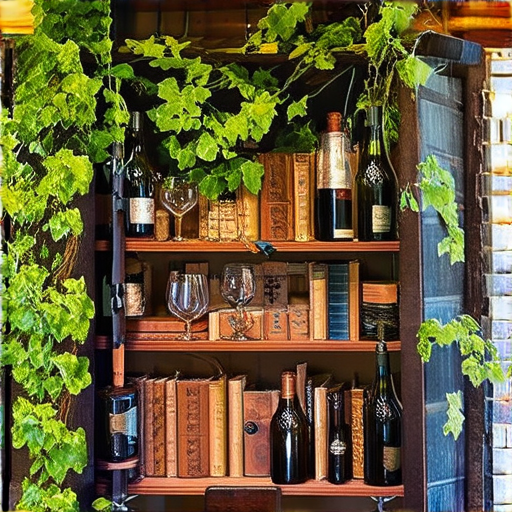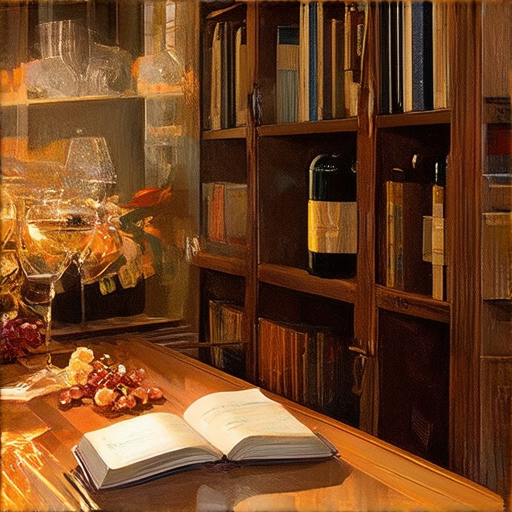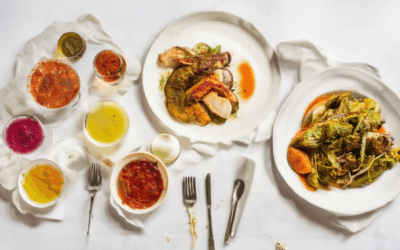Embarking on a journey to unlock the world of wine requires a solid foundation in wine education, a crucial step towards becoming a wine connoisseur. For those new to the realm of wine, selecting the right wine course can seem daunting, but it doesn’t have to be. With numerous options available, from online courses to textbooks, choosing the perfect resource can be overwhelming. Whether you’re looking to deepen your knowledge of wine or simply want to learn the basics, there’s never been a better time to explore the world of wine education. From popular wine certification programs like WSET to renowned wine books like Wine Folly, we’ll delve into the top picks for wine education books, covering both beginner-friendly resources and advanced texts for seasoned professionals.
This comprehensive guide will cover everything from understanding wine tasting techniques to exploring career opportunities in the wine industry, providing valuable insights and expert recommendations along the way. By the end of our journey, you’ll be well-equipped to navigate the complex world of wine, armed with the knowledge and confidence to take your passion to the next level.

How to Educate Yourself on Wine
I’m excited to share my journey of learning about wine, and I hope it inspires you to do the same.
- Start with wine tasting guides to understand the basics of wine tasting and how to evaluate different types of wine.
- Read books on wine to gain a deeper understanding of wine production, history, and culture.
- Join online forums and communities to connect with other wine enthusiasts, ask questions, and learn from their experiences.
- Follow reputable wine publications to stay updated on the latest news, trends, and reviews.
- Visit wineries and vineyards to see the wine-making process firsthand and taste different varieties.
- Take a wine course to learn about wine and spirits from certified instructors.
- Participate in wine competitions to discover new wines and learn about the judging process.
- Experiment with different wines to find your personal preferences and style.
- Keep a wine journal to track your progress, note your favorites, and plan future tastings.
Key Takeaways
Learning about wine takes time, patience, and practice. Remember to always keep an open mind, be willing to try new things, and have fun along the way!
Wine Education: A Comprehensive Guide
As a wine enthusiast, understanding the world of wine can seem daunting, but with the right education, anyone can become a connoisseur.
What is Wine Education?
Wine & Spirit Education Trust (WSET) defines wine education as “the process of acquiring knowledge and skills to understand, appreciate, and enjoy wine.”
- Wine education encompasses various aspects, including wine history, wine regions, grape varieties, winemaking techniques, and wine and food pairing.
- It involves learning about different wine styles, such as red, white, sparkling, and dessert wines.
- Wine education also covers wine service, wine storage, and wine preservation.
Types of Wine Certifications
Several organizations offer wine certifications, including:
- Sommelier Certification Program
- Wine & Spirit Education Trust (WSET)
- Certified Wine Professional (CWP)
Benefits of Wine Education
Wine education offers numerous benefits, including:
- Improved wine knowledge and appreciation
- Enhanced wine selection and purchasing skills
- Increased confidence in wine service and presentation
- Opportunities for career advancement in the wine industry
How to Get Started with Wine Education
To begin your wine education journey, consider the following steps:
- Take online courses or attend wine classes
- Join wine clubs or organizations
- Read wine books and articles
- Visit wine regions and taste different wines
Conclusion
Wine education is a lifelong journey that requires dedication and passion. By understanding the basics of wine and continuing to learn, you can develop a deeper appreciation for the world of wine and become a confident wine enthusiast.

Best Wine Course
We’re excited to share our top picks for wine courses that can elevate your knowledge and skills.
- Fine Vines – Degree in Enology and Viticulture
- WSET – Wine & Spirit Education Trust
- Coursera – Wine Specialization
Why Choose These Courses?
Our top picks offer a combination of theoretical knowledge, practical skills, and hands-on experience.
- Fine Vines – Degree in Enology and Viticulture: This comprehensive program covers the scientific aspects of winemaking, from vineyard management to bottling.
- WSET – Wine & Spirit Education Trust: With its globally recognized certifications, WSET offers a structured approach to learning wine, covering topics like wine regions, grape varieties, and wine styles.
- Coursera – Wine Specialization: This online course provides an in-depth exploration of wine production, focusing on topics like fermentation, aging, and blending.
What Sets Them Apart?
Each course has its unique strengths, but what sets them apart is their ability to cater to different learning styles and goals.
- Fine Vines – Degree in Enology and Viticulture: Its hands-on approach and emphasis on practical skills make it ideal for those looking to pursue a career in winemaking.
- WSET – Wine & Spirit Education Trust: Its structured curriculum and globally recognized certifications make it perfect for those seeking a formal education in wine studies.
- Coursera – Wine Specialization
- Vinography – Online Wine Courses

How to Become a Wine Connoisseur
- Fine Vines Wine Tasting Guides: A comprehensive resource for learning the art of wine tasting and description.
- Start by taking a sommelier course, which can be expensive but provides valuable training in tasting and describing wines.
- Practice tasting and describing wines regularly to develop your palate and skills.
- Learn about different wine regions, grape varieties, and wine-making techniques to gain a deeper understanding of the world of wine.
- Experiment with pairing wines with food to enhance your appreciation of both.
- Join online forums or local wine clubs to connect with other wine enthusiasts and learn from their experiences.
- Read books and articles about wine to stay up-to-date on the latest trends and developments.
- Visit wineries and vineyards to see firsthand how wine is made and meet the people behind the wine.
- Be open-minded and willing to try new things – you never know what you might discover!
Key Skills for a Wine Connoisseur
A wine connoisseur should possess a combination of technical knowledge, sensory skills, and personal preferences.
- Tasting skills: The ability to identify flavors, aromas, and textures in wine.
- Wine knowledge: Understanding of wine regions, grape varieties, and wine-making techniques.
- Sensory skills: Ability to perceive and describe the physical characteristics of wine.
- Personal preferences: The ability to evaluate and express individual tastes and opinions.
Building Your Wine Library
A well-curated wine library is essential for any serious wine enthusiast.
- Fine Vines Wine Lists: A curated selection of wines from around the world.
- Explore different wine styles and regions to find the ones that suit your taste preferences.
- Invest in high-quality wine storage equipment to preserve your collection.
- Consider purchasing wine through reputable distributors or online retailers.
Staying Up-to-Date
The world of wine is constantly evolving, and staying informed is crucial for any serious enthusiast.
- Wine Spectator: A leading publication for wine news, reviews, and trends.
- Vinous Media: A trusted source for wine reviews, ratings, and recommendations.
- Attend wine events, conferences, and workshops to network with other enthusiasts and learn from experts.
- Subscribe to wine-related newsletters and podcasts to stay informed about the latest developments.
The Highest Paying Job in the Wine Industry
- Wine Jobs reports that the highest paying job in the wine industry can vary depending on factors such as location, experience, and specific role.
- A senior winemaker at a prominent winery can earn upwards of $120,000 per year, according to Winemag.
- Another high-paying position is that of a wine director, which can command salaries ranging from $100,000 to over $150,000 per year, depending on the company and level of experience.
- Beverage Daily notes that the average salary for a wine industry professional is around $50,000 per year, although this figure can vary widely depending on the specific role and employer.
- Other high-paying positions in the wine industry include:
- Chief Operating Officer (COO): $80,000 – $120,000 per year
- General Manager: $60,000 – $100,000 per year
- Viticulturist: $40,000 – $80,000 per year

Is WSET the Same as Sommelier?
WSET stands for Wine & Spirit Education Trust, which offers various levels of wine education certifications. While WSET is often associated with sommeliers, they are not exactly the same thing.
Understanding WSET Certifications
WSET provides several levels of certification, ranging from entry-level to advanced. These certifications cover topics such as wine regions, grape varieties, wine production methods, and wine styles. WSET certifications are recognized globally and can be beneficial for those interested in pursuing a career in the wine industry.
Sommelier Certification
A sommelier is a professional who has expertise in wine service, wine and food pairing, and wine knowledge. To become a certified sommelier, one typically needs to pass a series of exams administered by organizations such as the Court of Master Sommeliers or the International Sommelier Guild.
Differences Between WSET and Sommelier
While WSET certifications demonstrate knowledge of wine, they do not necessarily qualify someone to work as a sommelier. To become a sommelier, one must have extensive experience in the wine industry, particularly in wine service and wine and food pairing.
Pathway to Becoming a Sommelier
However, WSET Level 2 Award in Wines is an essential step towards becoming a sommelier. This level of certification demonstrates a solid understanding of wine fundamentals and can be a stepping stone for those seeking to advance their careers in the wine industry.
Competitors and Industry Recognition
Other notable wine education programs include the Court of Master Sommeliers, the International Sommelier Guild, and the Wine & Spirit Education Trust’s own Advanced Certificate in Wine Studies. Each program has its unique strengths and focuses, and individuals may choose to pursue certifications from multiple organizations depending on their career goals.
Conclusion
In summary, while WSET and sommelier certifications share some similarities, they are distinct entities. WSET certifications demonstrate knowledge of wine, whereas sommelier certifications require extensive experience in the wine industry. By pursuing WSET certifications, individuals can lay the groundwork for a successful career in the wine industry and potentially advance towards sommelier certification.

0 Comments